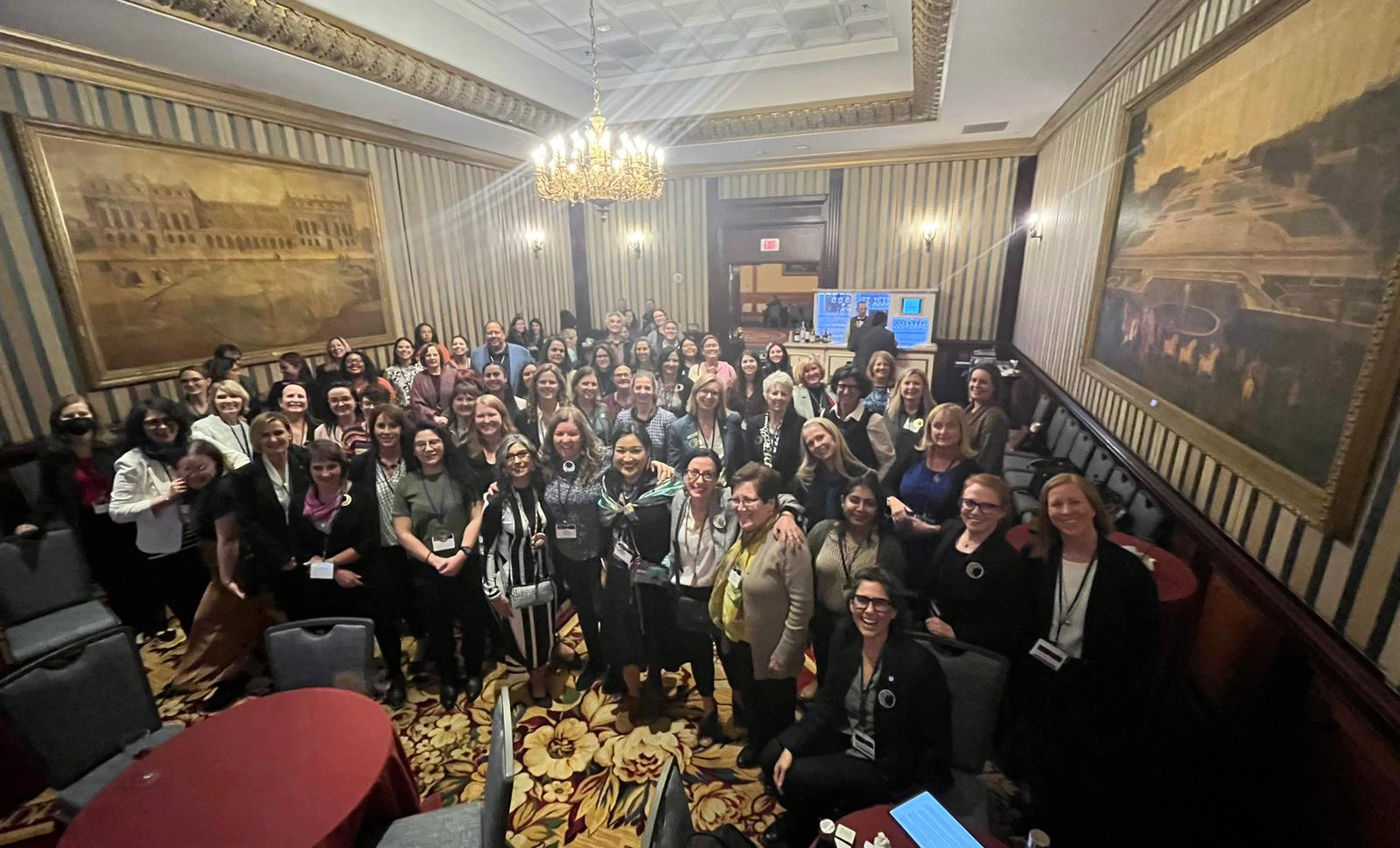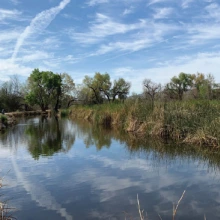
Reception to launch the North American section of the Women in Water Diplomacy Network. Image: Jennifer Pitt
The arrival of a new year has caused me to look back over the past 20 years of my teaching, writing, and speaking on Arizona’s water challenges. Luckily, there is a record of my reflections on these challenges that reveals repeated important themes. For my Spring Semester graduate course, Water Policy in Arizona and Semi-arid Regions, I ask the students first to read: (1) the Compendium of 75 columns that I contributed to the WRRC’s Arizona Water Resource newsletter from the time I joined the WRRC in early 2002 to late 2018 when the newsletter was discontinued; and (2) my Reflections essays, the successors to my newsletter columns, 38 of which have been published through the WRRC’s Weekly Wave.
As I look back on these columns, along with my essays and other writings, I see some repetition of enduring themes regarding consultation, compromise, and collaboration. For example, an early 2003 column was about collaborating with others. There I suggested that willingness to compromise and being both patient and persistent are important to addressing water issues, including the most basic -- meeting the long-term water needs of all of Arizona’s communities, not forgetting the needs of natural systems. Multiple columns and essays with the word “action” in their titles address the need for statewide water planning, which would involve consultation. In writing about wicked water problems, I highlighted the process of identifying pathways to addressing our many state and regional water challenges that fit the description of wicked problems. These themes carry through to today. In a case study on the International Boundary and Water Commission I contributed to a soon-to-be-published international handbook on water diplomacy, I emphasize key process factors and personal characteristics, including trust and mutual respect, inclusive engagement with partners, and leadership, which can help forge the compromises that lead to action. (Follow the Weekly Wave for notice of the case study’s publication.)
As one year transitions to the next, I also think about some take-aways from the 2023 Colorado River Water Users Association (CRWUA) annual conference, a large gathering of water professionals from throughout the Colorado River Basin held in December. I came away from last month’s meeting with the same themes in mind: consultation, compromise, and collaboration.
An additional theme I’ve emphasized over the years is the importance of sharing experiences and lessons learned, both positive and negative. Interactions at CRWUA reinforced for me the importance of listening to learn, particularly in the context of learning about Indigenous experiences and perspectives. On the side of and at the CRWUA conference, there were multiple opportunities to listen and learn. These included opportunities to hear about the experiences of women, including the reception to launch the North American section of the Women in Water Diplomacy Network.
We know that 2024 will include debates on challenging water issues in Arizona and the region. How should we address groundwater overdraft outside of Arizona’s Active Management Areas? What should we do to improve the assured water supply rules in the Active Management Areas? What will the new regulations for sharing the Colorado River’s reduced flows look like? How should funding be allocated to address water infrastructure, water quality, water augmentation, water conservation, and other needs? How can water users respond to new regulations and fundings decisions? Answering these questions will reference repeated themes: (1) process will be very important; and (2) respectful and inclusive dialogue is required to translate debate into action.
During the coming semester, I aim to contribute to the graduate students’ understanding of the context of the water policies we’ll discuss throughout the semester. I look forward to our class discussions, often with outside experts, and individual student papers and presentations on a water policy topic of their choosing. But they’ll start by reading what has now become a rather long reading assignment — and, importantly, preparing questions generated by the reading. The class, too, is a process, one that I look forward to each Spring Semester with optimism. This optimism is another theme arising from my experience. It is generated by interacting with students and observing the actions of the next generation of water leaders as they progress in their careers.

Reflections
Reflections, a series of essays by Sharon B. Megdal, is published several times a year through the WRRC’s Weekly Wave e-news digest.
Check out the Reflections essays here.

